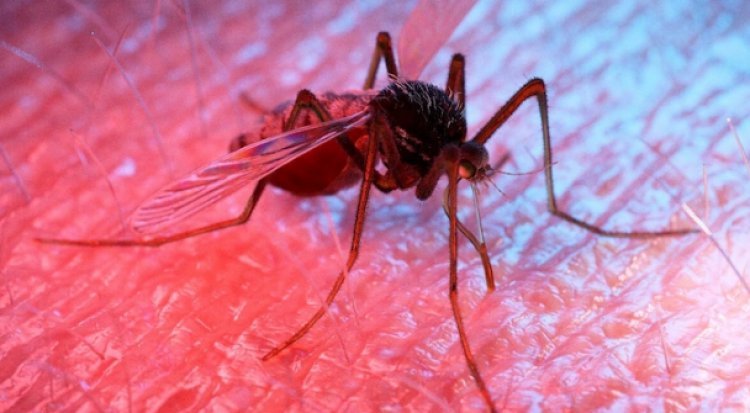What happens to the body after being infected with dengue?
The most frequent Dengue symptoms are high-grade fever and strong headaches called retro-orbital, where the discomfort is generally behind the eyes.

Dengue fever cases grow every year, particularly during the monsoon season. High temperature, headaches, body pains, muscle or bone pain, eye discomfort, rashes, swollen glands, and nausea are common symptoms.
Although symptoms differ from person to person, one typical occurrence among infected persons is a significant reduction in blood platelet count. Platelets are cells that aid in the clotting of blood. A low platelet count might result in serious bleeding.
What happens to the body after a Dengue infection?
Dr. Pooja Pillai, Internal Medicine Consultant and Diabetologist at SPARSH Hospital, confirmed the news to IndiaToday.When an infected mosquito feeds on a human, it injects the dengue virus into the circulation on a cellular level. In this manner, the virus infects and replicates in the body's specialist immune cells.
"It then produces antibodies that destroy the patient's platelets." "This is why the platelet count drops during dengue fever," explained Dr Pooja Pillai.
Dengue fever, commonly known as breakbone fever, is a viral ailment caused by infected mosquito bites. It is spread through the bite of a female Aedes mosquito, which breeds in standing water.
People with a poor immune system are more susceptible to the sickness. During the monsoon season, when mosquito populations tend to increase, outbreaks are more prevalent. Warm temperatures combined with stagnant water create perfect breeding conditions for mosquitos, increasing the risk of dengue transmission.

The most frequent Dengue symptoms are high-grade fever and strong headaches called retro-orbital, where the discomfort is generally behind the eyes.
Body pains, joint discomfort, rashes, nausea, vomiting, and stomach pain are also common.
How long does it take for a Dengue illness to develop after a mosquito bite?
The incubation period is generally 4 to 10 days after the bite. You can get the illness at any point throughout that time period.
-The fever and symptoms generally appear after the fourth or fifth day following the bite and can be classified into three stages.
The first stage is the febrile phase, which typically lasts from day one to three or four at most.
-The critical phase is the second phase. It lasts from the third to the seventh day of the week. During this time, the platelet count drops, which might result in bleeding. This might manifest as bleeding from the gums or nostrils. This stage may also include vaginal bleeding, blood in the urine, and other symptoms.
-The Convalescent phase, which begins after the seventh day, is the final stage. That is generally when the healing process begins.
What bodily changes occur with Dengue recovery?
Dengue's bodily alterations are mainly related to three major factors.
The first is a coagulation anomaly, which is a low platelet count that causes particular bleeding presentations (vaginal bleeding, nasal haemorrhage, blood in the urine, and so on).
"Plasma leaks and increased vascular fragility are two other changes." Plasma leakage from the cells continues, resulting in fluid loss, and fluid loss owing to increased capillary permeability results in hypovolemic shock. "This is when blood pressure begins to drop, which can lead to multiple organ failure," Dr Pillai explained.

Dengue fever generally has a one-week healing time. However, due to joint discomfort, lethargy, and exhaustion, it might be extended to a few weeks or even a month in rare situations.
The most essential thing to remember, according to the expert, is to prevent being bitten by mosquitoes.
"Make certain you are properly diagnosed and receive the appropriate treatment at the appropriate time." The critical period is crucial. If it is ignored and not detected, it might escalate to severe Dengue, which is almost fatal," Dr Pillai said.
Treatment for Dengue
"Although Dengue is a self-limiting disease, an adequate amount of hydration and rest is recommended when infected," Dr. Pillai stated.
Paracetamol is typically prescribed by doctors for symptomatic therapy. In severe dengue, there may be warning indications such as extended fever, body pains, nausea, vomiting, and abdominal discomfort.
"In such cases, the patient must closely monitor their platelet count." If their platelet count drops dramatically, patients may develop bleeding, shock, and require hospitalization or possibly a platelet transfusion," Dr Pillai noted.













